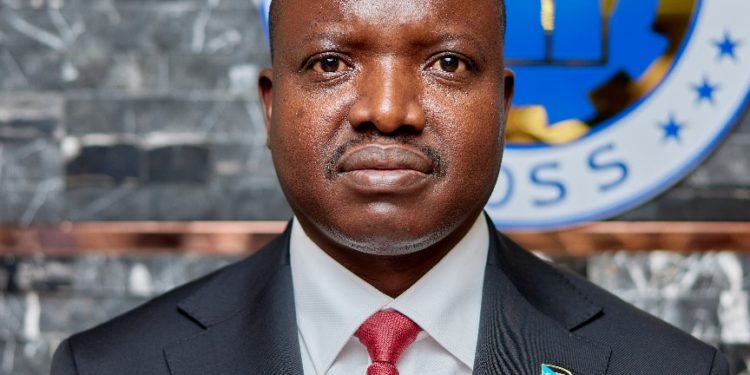By SUDAN TRIBUNE
March 9, 2024 (JUBA) – A South Sudanese lawmaker and the minister of Presidential Affairs are demanding that the Central Bank governor be given longer tenure, citing the need for stability and to allow for the implementation of plans and monetary policies to stabilize markets as well as consumer prices.
Speaking exclusively to Sudan Tribune on Saturday, Maker Thiong, a legislator from Jonglei state in the national legislative assembly said giving long tenure to the Central Bank governor was important for stability and the delivery of services.
He, however, said that whatever is agreed upon should fully be implemented.
“The period of services has been the issue. Tenure is always a source of concern. But the act of the bank of South Sudan is clear. It calls for independence of the bank but you still see that governors come and go. This affects stability since governors get removed before implementing plans and activities for which they were appointed, just in the middle of the planning process. This has created a serious concern and the parliament is getting these concerns and was exactly what I said when I was in Bor town, Jonglei state, as part of the national legislative assembly’s representatives, accompanying the central bank governor, Hon. Dr. James Alic Garang when he visited with his team,” explained Thiong.
He added, “I said in that meeting that for a governor of the central bank to deliver services, he needs time to plan and implement them”.
The lawmaker said President Salva Kiir should be guided carefully and advised to consider the issue of tenure as a key factor in evaluating officials’ performances.
“If I meet His Excellency the President today, I will explain the rationale behind these concerns to consider the issue of tenure. This is an important issue because time is a key factor. When someone is appointed, he comes with clear ideas, draws up plans, and starts working on his activities and before embarking on the implementation, he is removed. When another comes, he starts afresh and this is one of the problems being faced today”, he stressed.
Similarly, the Presidential Affairs minister, Joseph Bangasi Bakosoro disapproved the frequent changes, saying he does not believe in these unnecessary changes because it does not give people the opportunity to exercise their abilities.
He said people be given chances to perform duties for which they are appointed.
“Give chance to everybody to exercise their abilities. If you change me today, only within one month, another comes, and he or she knows she is going within one month. What will happen? That person will collect everything to go because he or she know will go within one month. So, in a way, when there is no job security for everybody and When there is no job security, there is no progress. So, you progress when we give you a chance to exercise your ability to do what is good, what you know. But before you exercise what you know, you are already gone. I don’t believe in that I will not stand with that”, argued Bakosoro
The minister used his culture to explain the importance of giving a long tenure to an official to plan and execute plans. The Azande community, he said, gives someone three chances before deciding on serious efforts and substantive dialogue to understand the cause of underperformance.
“You don’t just dismiss somebody. You give them chances and our Azande culture gives three chances, serious three chances. The last one is either I die or you die. That is all. So, you don’t just come to me, dismiss and I accept, dismiss and I accept. No, there are three chances. I give you advice three times, serious one”, he said at the commissioning of the completed Nilepet building in Juba on March 3, 2024.
He added: “You know are talking about delivery of services and this takes time because it involves planning. When someone is appointed, what is expected in the performance of his duties, and if someone is appointed today and removed tomorrow, it does not encourage performance”.
Analysts say the frequency with which officials are removed from their services at the bank undermines the Bank of South Sudan Act 2011, amended 2023.
Garang, A US-trained economist, was appointed Central Bank governor in 2023.
Since his appointment, he as unveiled a raft of new approaches to strengthening monetary policy framework and mobilizing foreign exchange to stabilize market. Other measures include, maintaining restrictive monetary policy, revisiting the deployment of monetary policy instruments and rebuilding forex reserves, coordinating with fiscal authorities to tighten fiscal policy while mobilizing domestic revenue, and modernizing payment systems, addressing excess liquidity outside banking system. The strategy extends beyond other remits to support electronic banking and other mobile platforms to foster financial inclusion.
(ST)







Discussion about this post